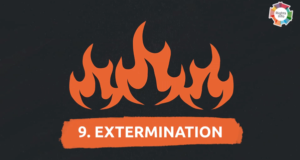by Laila al-Hadad, November 27th,
Hope gives way to disappointment as Palestinians wait for crossing to open
My family and I are on our way back to Gaza from the US. We flew in to Cairo last week, and from there embarked on a five hour taxi ride to the border town of al-Arish, 50 km from the border with Gaza.
We rest in al-Arish for the night.
We carried false hopes the night before last, hopes transmitted down the taxi driver’s grapevine, the ones who run the Cairo-Rafah circuit, that the border would open early that morning. So we kept our bags packed, slept early to the crashing of the Mediterranean – the same ones that just a few kilometers down, crashed down on Gaza’s besieged shores.
But it is 4, then 5, then 6 AM, and the border does not open.
And my heart begins to twinge, recalling the last time I tried to cross Rafah; recalling how I could not, for 55 days; 55 days during which my son learned to lift himself up into the world, during which he took his first fleeting steps, in a land which was not ours; 55 days of aloneness and displacement.
The local convenience storeowner tells us he hears the border may open Thursday -“but you know how it is, all rumors.” No one can be certain. Even the Egyptian border officials admit that ultimately, the orders come from the Israeli side.
It’s as though they take pleasure as we languish in the uncertainty. The perpetual never-knowing. As though they intend for us to sit and think and drive ourselves crazy with thought. I call an Israeli military spokesperson, then the Ministry of Defense, who direct me back to the spokesperson’s office, and they to another two offices; I learn nothing.
As an Israeli friend put it, “uncertainty is used as part of the almost endless repertoire of occupation.”
Even the Palestinian soccer team has been unable to leave Gaza because of the Rafah closure, to attend the Asian games. No one is exempt. Peasant or pro-football player, we are equally vulnerable.
Long days
It is now our fifth day in al-Arish. Rafah Crossing has been closed more or less for more than six months, opening only occasionally to let through thousands of stranded Palestinians. And then it closes again.
Every night, it’s the same ritual. We pack all our things, sleep early, and wake up at 5 to call the border.
We’ve rented a small beachside vacation flat here. They are cheap – cheaper than Cairo, and certainly cheaper than hotels, and are usually rented out to Palestinians like us, waiting for the border to open. Its low season now, and the going rate is a mere USD 12 a night.
In the summer, when the border was closed, rates jumped to a minimum of USD 35 a night -and that’s if you could find an available flat. We can afford it. But for many Palestinians who come to Egypt for medical treatment, and without large amounts of savings, even this meager rental fee can begin to add up.
Palestinian slum
During times of extended closure, like this summer, and last year, al-Arish becomes a Palestinian slum. Thousands of penniless Palestinians, having finished their savings and never anticipating the length of the closure, end up on the streets.
In response, the Egyptian police no longer allow Palestinians driving up from Cairo past the Egyptian port city of al-Qantara if the border is closed and al-Arish becomes too crowded.
“They turn it into a ghetto. That and the Israelis didn’t want them blowing up holes in the border again to get through,” explains the taxi driver nonchalantly.
Young Palestinian men on their way to Gaza have it worse off: They are confined to the Cairo Airport or the border itself, under military escort – and only after surrendering their passports.
No one cares
We go “downtown” today – all of one street – to buy some more food. We are buying in small rations, “just in the case the border opens tomorrow.” I feel like we’ve repeated that refrain a hundred times already. I go and check my email. I feel very alone; no one cares, no one knows, no one bothers to know. This is how Palestinian refugees must feel every day of their lives.
I read the news, skimming every headline and searching for anything about Rafah. Nothing. One piece about the Palestinian soccer team; another about the European monitors renewing their posts for another six months. We do not exist.
If you are “lucky” enough to be stuck here during times of extended closure, when things get really bad – when enough Palestinians die on the border waiting, or food and money are scarce enough for the Red Cross to get involved, then maybe, maybe you’ll get a mention.
And people will remember there are human beings waiting to return home or get out and go about their daily lives and things we do in our daily lives – no matter how mundane or critical those things might be. Waiting to be possessed once again.
But now, after six months, the closure is no longer newsworthy. Such is the state of the media – what is once abhorred becomes the status quo and effectively accepted.
Sieged
It used to be that anyone with an Israeli-issued travel permit or visa could cross Rafah into Gaza – but never refugees of course. Since the Disengagement last year, all that has changed.
With few exceptions (diplomats, UN and Red Cross staff, licensed journalists) no one besides residents of Gaza carrying Israeli-issued IDs can enter Gaza now. No foreigners, no Arabs, no West Bankers, not even spouses of Gaza residents, or Palestinian refugees.
A few more days pass. They seem like years.
For Palestinians, borders are a reminder – of our vulnerability and non-belonging, of our displacement and dispossession. It is a reminder – a painful one – of homeland lost. And of what could happen if what remains is lost again. When we are lost again, the way we lose a little bit of ourselves every time we cross and we wait to cross.
We wait our entire lives, as Palestinians. If not for a border or checkpoint to open, for a permit to be issued, for an incursion to end, for a time when we don’t have to wait anymore.
So it is here, 50 kilometers from Rafah’s border, that I am reminded once again of displacement. That I have become that “displaced stranger” to quote Palestinian poet Mourid Barghouti. Displacement is meant to be something that happens to someone else, he says. How true. To refugees that the world cares to forget. Who have no right of return. Who return to nowhere and everywhere in their minds a million times. When the border closes, we are one day closer to become that.
Of course, that refugee is Yassine, my husband, who cannot even get as far as Egypt to feel alone. Who cannot join me and Yousuf as we journey back and forth through Rafah.
But the Palestinian never forgets his aloneness. He is always, always reminded of it on borders. That, above all, is why I hate Rafah Crossing. That is why I hate borders. They remind me that I, like all Palestinians, belong to everywhere and nowhere at once. They are the Borders of Dispossession.
We’ve packed and unpacked our bags a dozen times. My mother finally gave in and opened hers up in a gesture of frustration – or maybe, pragmatism. It seems like a bad omen, but sometimes things work in reverse here: last time we were stuck waiting for the border to open, when we decided to buy more than a daily portion of food, the border opened.
Everyone is suddenly a credible source on the closure, and eager ears will listen to whatever information they provide.
One local jeweler insisted it would open at 4 PM yesterday – a suggestion that the taxi drivers laughed off; they placed their bets on Thursday – but Thursday has come and gone, and the border is still closed.
Atiya, our taxi driver, says he heard it wouldn’t open until the Muslim pilgrimage (Hajj), a few weeks from now. We’re inclined to believe him – taxi drivers have a vested interest in providing the most reliable information; their livelihood depends on it.
In the end, “security” is all that matters and all that ever will. As Palestinians, we’ve come to despise that word: Security. It is has become a deity more sacred than life itself. In its name, even murder can become a justifiable act.
We sleep, and wake up, and wait for the phone to ring for some news. Every time we receive a knock on the door we rush to see if the messenger brings good tidings. Today? Tomorrow? A week from now?
No, it’s only the local deaf man. He remembers us from last time, offers to take out our trash for some money and food.
We sit and watch the sunset. What does it know of waiting and anticipation and disappointment and hope – a million times in one day?
 International Solidarity Movement Nonviolence. Justice. Freedom.
International Solidarity Movement Nonviolence. Justice. Freedom.


